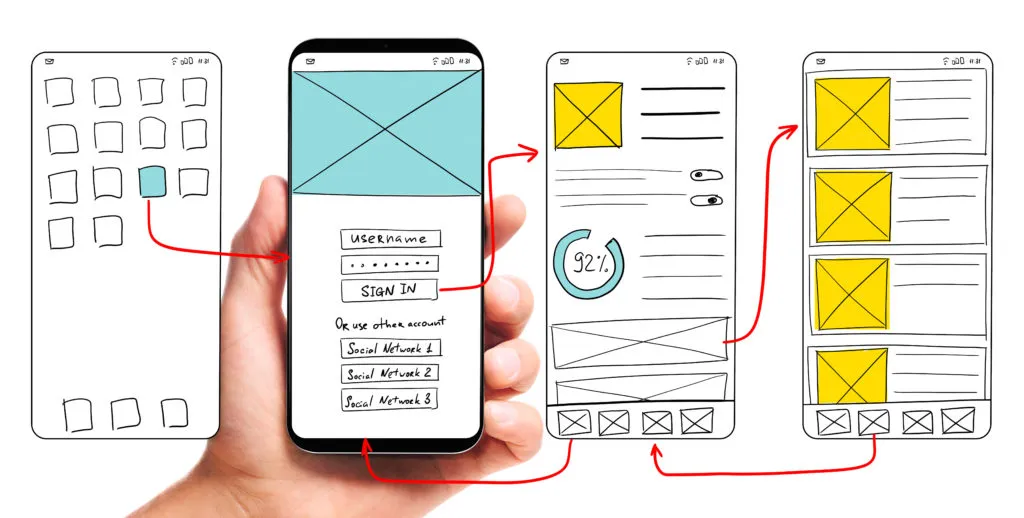
An in-depth look at digital marketing for insurance companies and ways you can use online tactics to build valuable and meaningful relationships.
Relationships and expertise are two crucial elements of running an insurance company. If customers don’t care about these two elements, they’ll likely go online and purchase their insurance transactionally instead. Digital marketing for insurance companies can help introduce you to new potential clients and then nurture relationships with them.
You face some challenges when running an insurance company in the digital age. Customers expect a top-notch technology experience, and quickly, millennials are becoming the top consumers with the most buying power and financial influence.
Prepare for meeting and delighting these new customers with a strategic digital marketing plan to build better relationships.
Before you can effectively market to your audience, you need to know your audience. And slowly, your audience has been shifting from baby boomers to millennials. These customers have different expectations for your business.

Buyer personas go beyond the traditional audience where you outline their age, income and geography. These personas instead help you dig deeper into what’s driving your customers. Why are they seeking out insurance solutions and what challenges do they face along the way?
Understanding the wants and needs of these customers will help you tailor your marketing messaging to meet their unique needs.
HubSpot offers helpful templates and explanations on how to build buyer personas. You should reevaluate your buyer personas every few years to make sure they are still relevant based on your customer base and what you’re hearing from new prospects about their challenges as well as industry insights from thought leaders about the needs of today’s insurance consumers.
Gone are the days of putting up a generic website cluttered with keywords designed to help you rank. Today’s consumers expect a personalized experience. And now that you know who they are and what they need, you’re prepared to give them that experience.
You can use a simple platform like WordPress to make managing your website simple. But know that free templates can harm your SEO and make your website generic. Instead, opt for working with a website designer to create a custom experience that matches your consumers’ needs. While that will have an upfront cost, it will have a great payback in bringing in new prospects and aiding in customer retention because your existing customers will be able to find what they need.

Write and design your website primarily with your customer in mind, and SEO as secondary. If you do it the other way around you might get plenty of traffic to your site but few conversions because your website won’t speak to the customer and their needs.
Some crucial elements of an insurance company website include:
Opening digital communication channels for your customers will be so important. Even if your chat functionality is only active during normal business hours, you’ll meet today’s digital consumers where they are at.
SEO is an ongoing tactic that you need for digital marketing for insurance companies. You can’t just implement this when you’re building your website and expect it to deliver results for years to come.
You must consistently develop great content and evaluate gaps in your existing content that matches customer search queries and intent. If you stop focusing on SEO, your competitors could easily leapfrog you and start stealing your website traffic.

Start with keyword research to understand what kinds of things consumers are looking for. Monitor those keywords long-term but also watch for emerging keywords or areas where your competitors are doing a better job than you are at reaching your consumers.
Research what others are doing and develop content that is better than theirs. Just like great websites start with the consumer in mind and SEO secondary, so does great content.
Review monthly reports for areas of opportunity and adjust your strategy as you go along. If this sounds too time-consuming, hire an expert. But be careful because there are many individuals out there who claim to be experts who just build spammy links to your website that can actually harm your website ranking. Ask for references and talk to the SEO company’s existing customers about their experience and changes in search engine rankings.
Nearly eight in every 10 consumers say that relevant and personal content helps to increase their interest in purchasing with a company. To reach these consumers you need to develop content that helps showcase your expertise.

But when developing content, you also need to consider the buying journey. Start with explaining the benefits of working with an agent and slowly move your way toward discussing risk evaluations and ways to protect valuables through insurance.
As you write content, don’t forget about existing customers. These customers need reassurance that they are in the right place for their needs and guidance in evaluating their risks regularly.
Content is prevalent in just about everything that you do. From your website copywriting to your social media posts and automated emails when someone requests a quote online, every interaction is an opportunity to meet customers where they are at with great content.
Consider gating some of that content to further build your prospect list while supplying your audience with great content. But don’t gate too much content. You need to have some readily available and in-depth information on your website to showcase your expertise and the value you bring your customers.
We help insurance agencies and brokers generate new leads using tested online marketing strategies.
As you think through the customer buying journey for your target audience, consider what information might help them make purchasing decisions with your company. Then, automate emails that speak to those needs.
When a customer requests a quote, follow up with an automated email that explains when they should hear back from an agent. Include links to relevant blog articles that will help the consumer understand the coverages that your agent outlines and recommends.
You should be explaining and preparing the customer for the next step in the buying journey with every email. And if they don’t immediately purchase from you, think of ways to touch base with these prospects six months and a year from now.
While insurance decisions are generally annual, you want to give consumers plenty of time before their renewals to make a purchasing decision. Their existing insurance relationship will likely automatically renew if the customer does nothing. Competing with that speed and convenience will be hard, especially if the consumer is with a budget insurance company where you’re selling better coverage but not necessarily at a lower cost.

After a consumer downloads gated content, be ready with a series of emails to follow in the coming days that explain the benefits of working with your insurance company and how to get started. But don’t launch right into selling right away. Instead, showcase the value of working with your company and what the consumer gets from that. You want to focus on their needs and less on your business.
While looking at your email campaigns, you also need to consider existing customers. Regular touch points with these individuals will aid in customer retention strategies. One important touchpoint you can make annually is on the person’s birthday. Outside of renewals, birthdays also offer a good reminder to evaluate insurance needs to make sure the consumer is covered for anything.
But you also want to trigger emails a month or two before renewals that ask pertinent questions about changes to their insurance needs, such as having a baby, purchasing a boat or recreational vehicle or completing upgrades to their home like a kitchen renovation.
Posting to social media is great and you’ll want to build a following there, but more than just broadcasting your insurance company’s posts, you should be joining communities and discussions related to insurance.

Look for community forums such as Facebook Groups and monitor conversations to answer questions. Avoid sales-focused posts that you originate and instead, look to be a resource for individuals asking questions. Position yourself as a resource and you’ll be amazed at how people come to respect you and seek out your services.
Facebook isn’t the only place for these conversations. LinkedIn also has groups where people can engage in discussions and there’s also Reddit and Quora. Social listening tools will make this an easier task to accomplish as engaging in these groups could be a full-time job otherwise.
Pay-per-click (PPC) campaigns can help you grow your social media following and website traffic. But they can also consume large parts of your marketing budget. Be highly strategic in how you run these campaigns to ensure a good return on investment.
Consider using PPC campaigns to point toward your gated content so it earns you new prospects that you can nurture into new clients.
Targeting keywords you’re hoping to rank for with your business can also be a strategic way to rise to the top of results now while you work on your SEO strategy. When done well, PPC campaigns are an excellent way to reach new customers in your community and have excellent ROI. But without a clear strategy, you risk spending money you won’t see back in your bottom line.
New Light Digital is a full-service digital marketing agency for insurance companies. We know the industry well and can help you meet new prospects online in a meaningful way. Schedule a free consultation now to learn more about how we can help you market your business.
Further reading:
Excellent article! Will check out these digital marketing insurance companies.